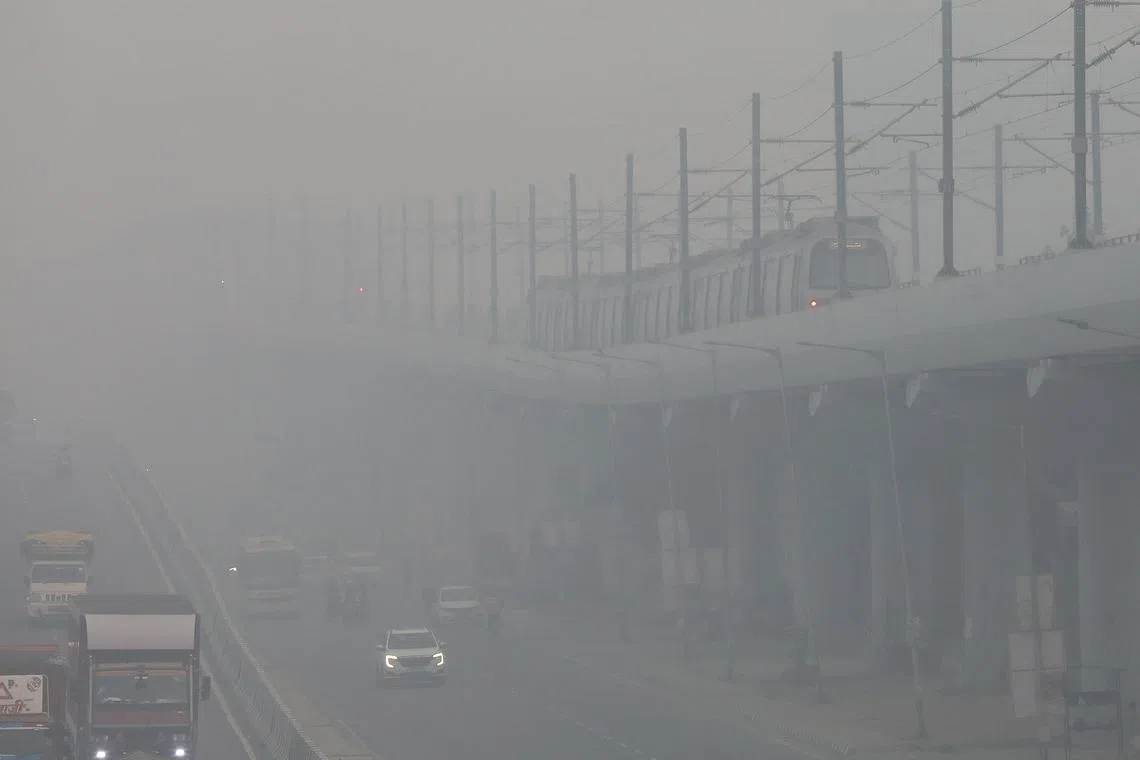Indian capital New Delhi’s ‘hazardous’ air pollution season starts
Sign up now: Get insights on Asia's fast-moving developments

The smog-filled air on the outskirts of Delhi on Oct 23. Government efforts have so far failed to solve India’s air quality problem.
PHOTO: EPA-EFE
Follow topic:
NEW DELHI – Acrid clouds engulfed India’s capital on Oct 23 as air pollution fuelled by fireworks and farm stubble burning was ranked “hazardous” by monitors for the first time this winter.
Commuters walking to work cough through poisonous smog that kills thousands each year, according to health experts, although few in the sprawling city wear masks.
The city’s famous India Gate monument was wreathed in foul-smelling mist.
New Delhi is blanketed in acrid smog each year, primarily blamed on stubble burning by farmers seeking to clear their fields for ploughing in the neighbouring regions.
Air pollution is expected to worsen, especially during the Hindu festival of lights, Diwali, which falls on Nov 1 in 2024.
Smoky fireworks, which spew hazardous pollution, are part of celebrations.
Levels of fine particulate matter – cancer-causing microparticles known as PM2.5 pollutants that enter the bloodstream through the lungs – surged to more than 68 times the World Health Organisation’s recommended maximum.
The pollutants topped 344 micrograms per cubic m on Oct 23, according to monitoring firm IQAir, which listed air in the sprawling megacity of some 30 million people as “hazardous”, ranking it as the world’s worst.
New Delhi in October ordered a “complete ban” on all firecrackers – both their manufacture and sale – in view of “public interest to curb high air pollution”.
Previous restrictions were routinely ignored.
Police are often reluctant to act against violators, given the strong religious sentiments attached to the firecrackers by Hindu devotees.
The Indian authorities have also banned stubble burning, and police in Haryana state have this week arrested several farmers for setting fires before tilling.
Government efforts have so far failed to solve India’s air quality problem, and a study in the Lancet medical journal attributed 1.67 million premature deaths in 2019 to air pollution in the world’s most populous country. AFP

